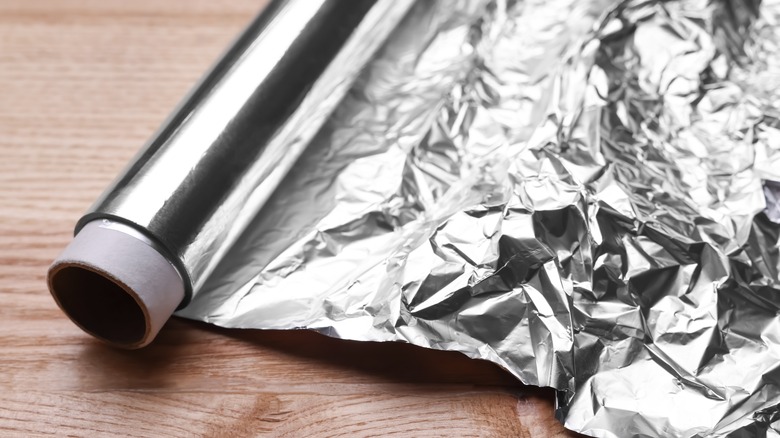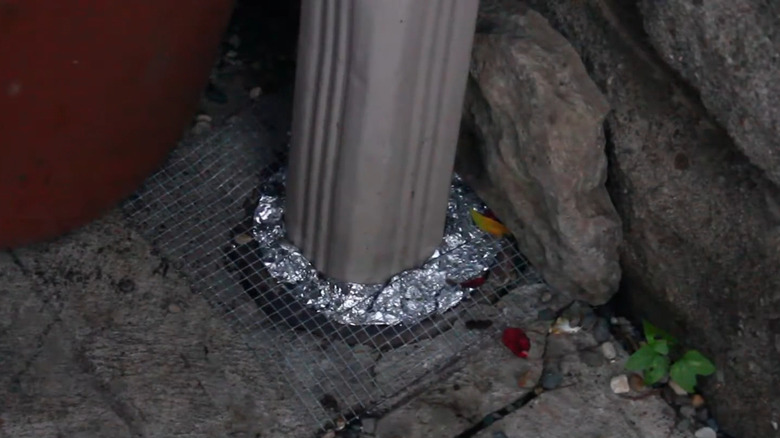Why You Should Keep A Roll Of Aluminum Foil In Your Basement
Aluminum foil is a superstar in the kitchen, but you probably haven't even considered using it to solve common basement problems, and that's one place where it really shines. Well, it shines everywhere, but you know what we mean. In a basement, your main goal is often to keep things where they're supposed to be... notably heat, cold, moisture, and pests. Here's how to do all of those things with a roll of foil.
Foil is sometimes used to help prevent frozen pipes with DIY insulation by keeping bulk insulation — anything from synthetic rubber or EPDM pipe insulation to old, clean rags — in place. It also serves as a radiant barrier, keeping heat in the pipes during winter and out during the warmer months (though this isn't usually a huge problem in basements).
You can also use foil to perform a simple wall moisture test in your basement. All you need is a one-foot by one-foot square of aluminum foil and duct tape. Flatten your foil square to the wall, sealing all four edges with the tape. Give it a day or so, then remove the foil. Moisture on the basement side of the foil might indicate high humidity, while condensation on the wall side tells you moisture is entering through the walls. Your temperature and moisture issues may be wrapped up (in foil, of course) and under control, but don't put it away yet. There is still one more job for aluminum foil in your basement.
Keeping pests out with foil
Foil can be used to seal gaps around pipes, unfinished framing, and the like simply by cramming it into the open spaces, and this approach has an even more useful purpose as well: it discourages pests that use some of the same routes as heat and cold to get into your home. Insects generally can't get through foil, which is why we wrap our mower engines in foil to keep bugs out for storage. Just as it will keep carpenter bees from re-entering their own holes, it will keep insects from taking the easiest route –- open gaps -– into your home. (By the way, this is not the best approach to dealing with carpenter bees. While you don't want to lure carpenter bees to your home, it's usually best to give them other housing options.)
By many accounts, aluminum foil will also deter mice. The conventional wisdom is that, while they can chew through foil, they strongly prefer not to. In fact, they reportedly don't even like stepping on the stuff. While there's enough anecdotal evidence to suggest that this works sometimes, there's also research showing that chewing aluminum foil reduces stress in mice caused by being in a novel environment. This suggests that mice will chew through foil with enough motivation, but it's impossible to know what that entails. In any case, blocking an easy entrance with aluminum foil is a good step to keep mice and insects out.

